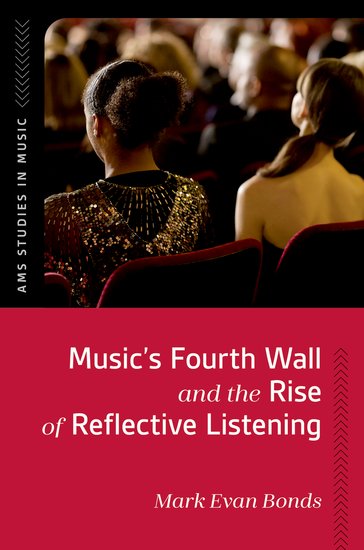By Mark Evan Bonds (NHC Fellow, 1995–96; 2021–22)

Oxford, UK: Oxford University Press, 2025
From the publisher’s description:
We’ve all heard the line before: “I enjoy classical music but don’t know anything about it.” The “but” is telling. Why and when did music-lovers begin to apologize for a lack of knowledge about what gave them pleasure? This book examines fundamental changes in concert-hall listening since the Enlightenment. By calling attention to the artifice of their art, composers like Haydn and Beethoven violated music’s fourth wall, that imagined barrier which for so long had allowed listeners to “lose” themselves in what they were hearing, to resonate with the music and to forget, in effect, that they were listening at all.
The new way of composing demanded a more reflective—distanced—perspective. By styling himself a Tondichter (“tone-poet”), Beethoven at once acknowledged a new way of both composing and listening, one in which instrumental music was no longer thought of as the “language of the heart”—wordless oratory, in effect—but rather as wordless poetry, a self-consciously artificial mode of expression that demanded reflection. By the middle of the nineteenth century, lay audiences had accepted the idea of listening as a skill that could be learned and cultivated. Music appreciation texts, composer biographies, program notes, and pre-concert lectures all helped reinforce a growing distinction between “classical” and “popular” repertories. Reflective listening became the new standard in the concert hall, even if only as an aspiration, and it remains so down to the present.
Subjects
Music / Music Appreciation / Classical Music / Romantic Music / Music Education / Ludwig van Beethoven / Franz Joseph Haydn / Europe /Bonds, Mark Evan (NHC Fellow, 1995–96; 2021–22). Music's Fourth Wall and the Rise of Reflective Listening. Oxford, UK: Oxford University Press, 2025.